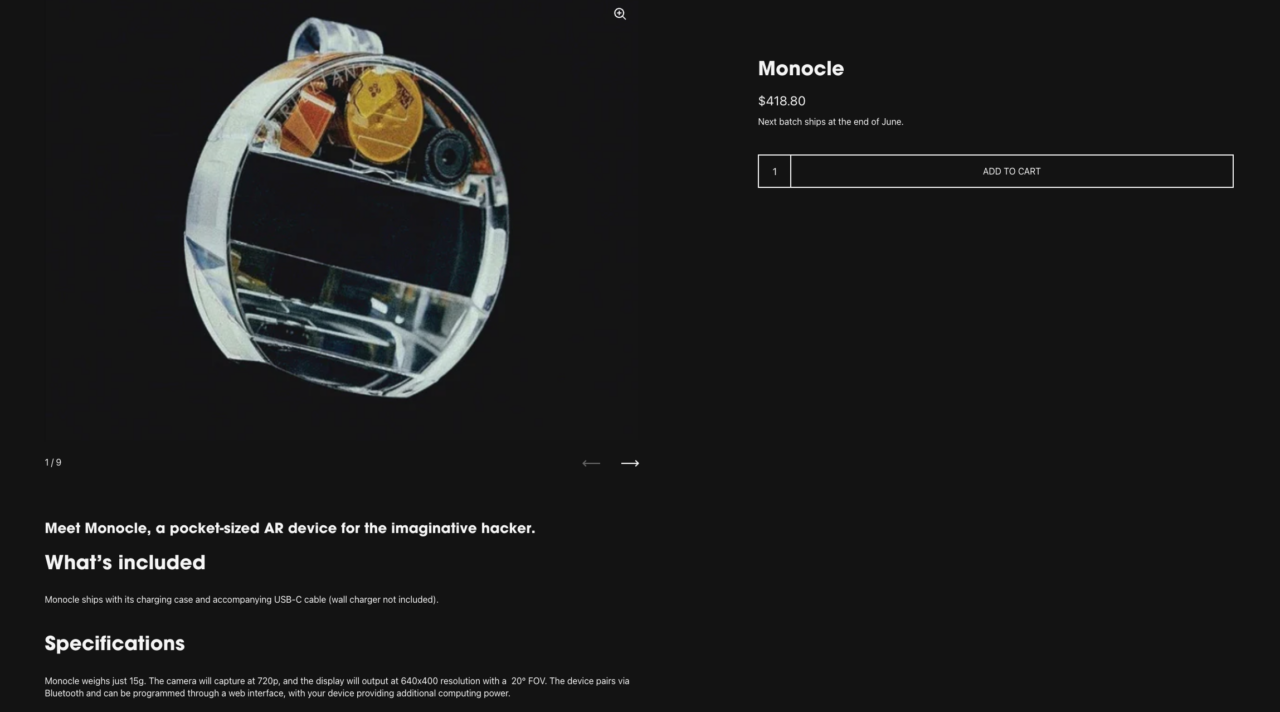In a novel approach to enhancing human conversations, Bryan Chiang, a 22-year-old computer science student at Stanford University, has developed an AI-powered monocle named RizzGPT. According to a recent report by Reuters, this innovative device leverages the capabilities of OpenAI’s artificial intelligence chatbot, ChatGPT, to generate responses in real-time conversations.
RizzGPT operates through an augmented reality eyepiece designed by Brilliant Labs. The eyepiece, which is open-source, allowing for firmware experimentation, is equipped with a camera, a microphone, and an internal projector screen where words are displayed in front of the user’s eye.

When someone converses with the user, RizzGPT monitors the conversation via the microphone, transforms it into text, and sends it to ChatGPT to generate a response. The response then appears on the small monocle screen after a short delay.

Chiang describes RizzGPT as a tool that provides “charisma on demand.” It listens to the ongoing conversation and suggests what to say next. However, the current prototype has a noticeable delay before the response appears, and the interaction may not seem very natural or charismatic. Despite this, Chiang emphasizes that the prototype is intended to demonstrate the potential of the technology.
The development of RizzGPT represents a shift in how we interact with computers. Chiang believes that the convergence of 5G connectivity, AR glasses, hardware, and intelligence creates a new way of interacting with systems, leading to a more natural operating system.
However, Chiang clarifies that the goal of RizzGPT is not to replace human conversation entirely. Instead, it is intended to serve as an assistive aid, helping users remember things they might have forgotten. He suggests that RizzGPT could be particularly beneficial for individuals who struggle with social anxiety or have difficulties conversing with others.
This development marks a significant step in exploring AI’s potential to enhance human interaction. As AI continues to evolve and improve, devices like RizzGPT could play a crucial role in shaping the future of human communication.
Featured Image Credit: Photo / illustration by “geralt” via Pixabay








